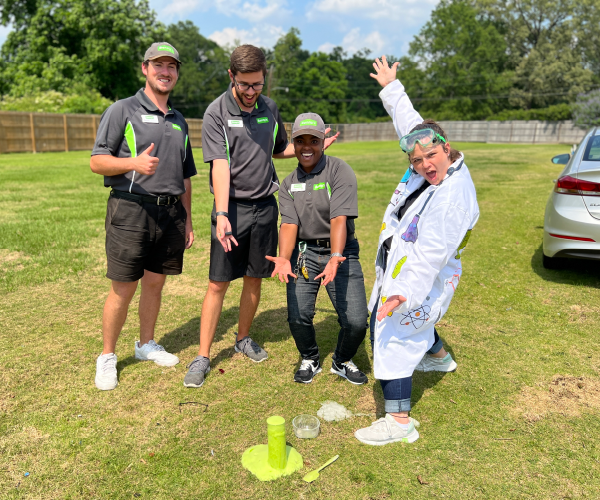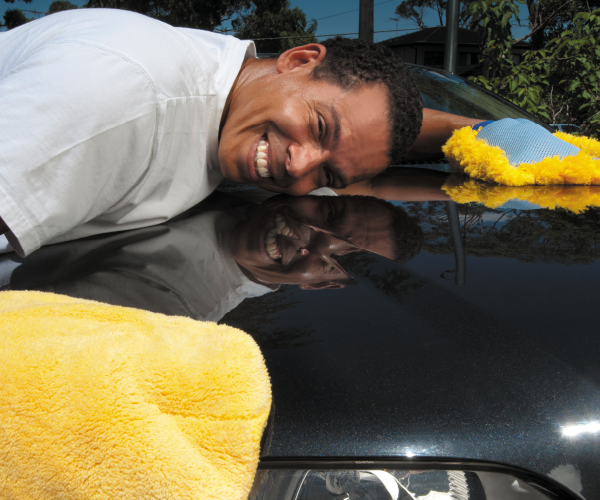
Vehicle Technology - Spring 2019
April 11, 2019
5 minute ReadYou probably remember Volkswagen’s small problem with their diesel TDI cars back in 2015. They were caughtby the EPA and other European regulators using hardware and software that would allow their cars to passemission regulations during testing but then turn off for better performance once out on the open road —and they tried to cover it up.
That little episode has reportedly cost VW over $30 billion in total, with over $7 billion paid to U.S. owners ofover 300,000 TDI cars that are now sitting in 37 different holding lots around the United States. The cars arebeing managed by an outside firm that is doing a 30-day maintenance cycle on all of them until they can beupdated with new software and sold back into the used car market. (We would love to know the monthly cost ofthat program!)
Guess what? The software that allowed VW to pass the test didn’t really make much difference in theperformance of the cars from a mileage or power perspective.
Battery degradation in many start-stop vehicles is occurring in situations where the drive cycle is such thatyou have a lot of stops and starts on a short commute to work.
The folks at Cars.com bought a TDI wagon from VW’s refurbishment program sporting the new software. Theyfound that the updated car did 37 mpg on the highway cycle of the test versus 39 for the original spec and 32mpg on the combined urban/highway cycle versus 33 on the original test. In a 135-mile urban and highway run, theteam ran the TDI before the fix and got 44.2 miles per gallon, and after the fix they got 42.4 mpg. Before thefix, they recorded 135.4 horsepower — after the fix, 133.1.
And the great irony?
Before the fix, the TDI would do 0-60 mph in 9.75 seconds. After the fix it was actually faster; it did 0-60 mphin 9.67 seconds.
VW’s recent problem was emission related, but we think there is a new (and somewhat similar) EPA storyemerging that is mileage related — and that is the whole issue of the real impact of start-stop systems onfuel economy.
In the EPA’s urban and highway fuel economy test, the urban section contains a significant amount ofstopping and starting. Vehicle manufacturers know that the mileage numbers on the window sticker can help selltheir cars, so they have created start-stop systems to shut the engine down at stop lights and other idlingperiods to boost the vehicle’s mileage. Depending on the drive cycle, these systems can deliver a 4-5percent gain in mileage.
Vehicle owners, however, are not universally thrilled with their start-stop system performance. Many see thesystems as bothersome in heavy traffic situations and new car customer satisfaction surveys have made that pointclear. In response, vehicle manufacturers have added ON/OFF buttons on the dashboard or steering wheel tosimplify the process of canceling the start-stop function.
Most of these ON/OFF circuits are “unlatched”; in other words, they return to the ON position everytime the car is started. They are designed that way because the EPA gives 100 percent credit for the mileageeffects of the start-stop system if the system is unlatched, but they will average the results of running thecar with the system fully ON and with the system fully OFF if the system can stay in the off position (a “latched”circuit) after it is restarted. The result will be a lower mileage figure on the window sticker.
Here is the emerging secret:
Battery degradation in many start-stop vehicles is occurring in situations where the drive cycle is such that youhave a lot of stops and starts on a short commute to work. Consequently, the battery life may be shortened bycycling and the system will shut itself off to ensure that you can start the car. So, whether the vehicle’sdriver is turning the system OFF because start-stop is bothersome, or the vehicle is turning itself OFF becausethe battery is degraded, the mileage reported during the EPA test is not occurring in the real world, and thewhole situation is completely sanctioned by the EPA.
Now, don’t get us wrong, it’s not that people are not working on this — lots of greatengineering is going on.
A lot of manufacturers are upgrading to enhanced lead acid batteries or Absorbed Glass Mat (AGM) batteries thatcan better handle both the starter loads as well as the other electrical loads of the vehicle when the engine isstopped, but we have heard reports of early degradation of AGM batteries and other tests showing a prettysignificant charge acceptance reduction over the warranty period of some vehicles with start-stop.
Others are taking a different technological approach. Companies are introducing ultra-capacitors that specializein quick energy releases for engine starts coupled with standard batteries to handle the other electrical loads.Capacitors can build up faster and discharge more often without degradation, allowing the standard battery tomaintain a higher percentage of overall charge and avoid the deep cycle discharges that ruin battery life.
The challenge here is to get the volume of ultra-caps up to reduce their cost so a combination of theultra-capacitor and a standard lead acid battery is cost effective.
Smart service shop owners have seen this opportunity and are taking advantage of it. They are becomingelectrification experts to be able to service the electric drive systems that are coming to pumps, compressorsand even turbochargers, and they are working with their clients who are operating vehicles in heavy start-stopenvironments (like package delivery vans) to add ultra-capacitors that can protect the vehicle’selectrical system and maintain the fuel economy effectiveness of the start-stop system in all kinds of dutycycles.
Derek Kaufman is a managing partner at Schwartz Advisors (SA). SA is a team of highly experienced autoaftermarket experts working with clients in corporate growth projects and both buy-side and sell-side merger andacquisition activities. As part of its growth consulting work, SA keeps current with the emerging technologiesand business models that will drive the future supply of automotive parts and service. The reference to anyspecific commercial products, processes, or services by trade name, trademark, manufacturer or otherwise, doesnot necessarily constitute or imply its endorsement, recommendation, or favoring by ICA or Schwartz Advisors.The views and opinions of the author do not necessarily state or reflect those of the ICA staff.








